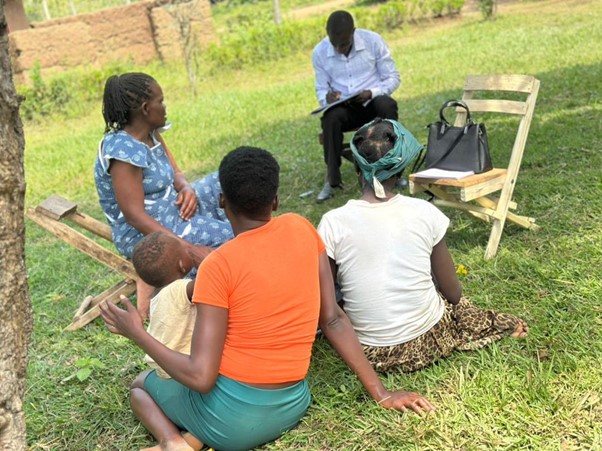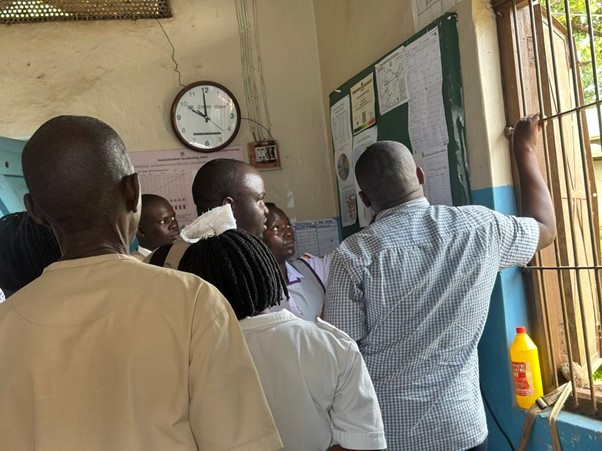- Plot 724/5, Mawanda Road, P.O Box 7484, Kampala Uganda
- +256 393 516266
- mail@anecca.org

Strengthening Immunization Coverage in Eastern Uganda

Our role in reaching Zero-Dose and Under-Immunized children
The Ministry of Health, through UNEPI, is working with Gavi and partners such as WHO, UNICEF, PATH, and CHAI to ensure every child and priority population is fully immunized. As part of this effort, PATH is supporting Anecca to implement tailored interventions targeting zero-dose and under-immunized children. Under the Equity Accelerator Fund (EAF), effective 1st June 2025, Anecca is implementing immunization demand-generation activities in Mbale, Tororo, and Kibuku districts to support MOH/UNEPI achieve its goal of 95% coverage for all antigens, reducing the number of under-immunized children and intensified efforts to reach zero-dose children in Uganda. Anecca’s activities include the following:

1. Engaging local government stakeholders and communities for immunization demand generation
We actively engage local government health and non-health structures, local councils, religious, cultural and opinion leaders, schools, and community-based organizations to implement demand generation interventions tailored to local needs. Together with the District Health Teams, we hold review meetings, plan outreach activities, and ensure alignment of community mobilization with district health priorities. Using evidence from the Behavioral and Social Drivers (BeSD) survey, we support targeted campaigns, organize sensitization workshops, and collaborate with local radio stations to broadcast accurate health information that addresses myths, misinformation, and barriers to vaccination, while promoting the benefits of timely immunization for children.

2. Addressing gender-related issues affecting immunization uptake to influence social/behavior change in relation to gender and immunization
Cultural and gender norms can influence whether children are taken for vaccination. In some households, decisions about child health are shaped by traditional practices or beliefs, which may create barriers for children to receive vaccines on time. To address these challenges, we partner with cultural, traditional, and religious leaders to raise awareness, promote shared decision-making, and ensure that all children have equal opportunities to access immunization services. Through community dialogues, targeted campaigns, and collaboration with gender-focused organizations, leaders help challenge misconceptions, encourage caregiver participation, and foster positive social and behaviour change. By integrating gender considerations into our immunization programs, Anecca works to create lasting improvements in equitable vaccine access and strengthen overall immunization coverage in the community.

3. Identification, mobilization and linkage of Zero-Dose and under-immunized households to immunization service delivery points
Through strong partnerships with VHTs, local councils, and community structures, we actively map and profile households with zero-dose and under-immunized children. This helps us identify children who have not received any vaccines and ensures that no household is overlooked in our immunization outreach efforts. To improve accuracy and efficiency, we are also integrating digital tools and geospatial mapping to track households in real time and link them to the nearest outreach immunization points or health facilities. By combining community engagement with innovative tools, Anecca ensures that every child is linked to life-saving immunization services.

4. Routine Monitoring, Evaluation and Learning
We support routine Monitoring Evaluation and Learning activities, including data collection, mentorship for health workers, validation exercises, and pause-and-reflect sessions to improve the quality and use of immunization data for decision-making.
Our Impact
Through these efforts, Anecca is:
• Increasing demand for vaccines through community-driven action.
• Reducing the number of zero-dose and under-immunized children in Mbale, Tororo, and Kibuku districts.
• Empowering community leaders to champion immunization.
• Supporting health facilities to strengthen data use and accountability.
Why it matters
Every child deserves the chance to grow up healthy and protected from vaccine-preventable diseases. By combining community engagement, gender-sensitive approaches, and strong data systems, Anecca is contributing to Uganda’s journey to achieve universal immunization coverage and ensure that no child is left behind.
